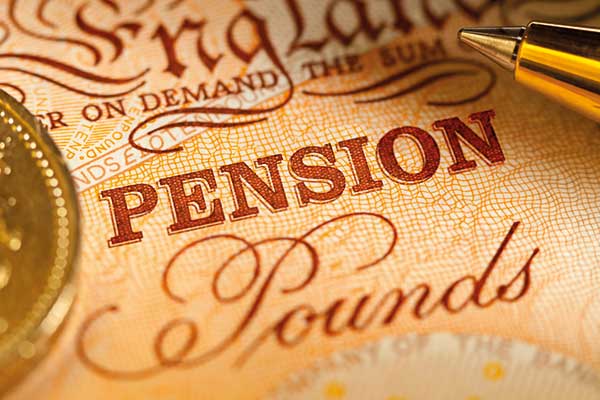Why you should resist dipping into your pension pot following sharp market falls
With many facing unemployment or reduced income, there may be a temptation to dip into your pension pot,…
27th March 2020 13:38
by Tom Bailey from interactive investor
With many facing unemployment or reduced income, there may be a temptation to dip into your pension pot, but that may not be a good idea.

With large swathes of the economy in shutdown, many people may now be facing the prospect of either losing their job or facing a sharp reduction in their income. While the government has outlined various schemes to help support those affected by the economic fallout of coronavirus, inevitably some people will fall through the cracks.
For those who are facing such difficulties and are over the age of 55, the option of dipping into a pension pot always exists. Current rules allow those over 55 to take up to a quarter of their pot tax-free.
Steve Webb, partner at pension consultants LCP, notes: “The good news is that pension freedom rules mean that those who are over 55 can access their pension pots, including the option of a 25% tax-free lump sum.” However, the former pensions minister cautions: “This should always be seen as a last resort.”
This is pertinent at the moment – global stock markets have left investors nursing heavy paper losses over the past month. When you dip into a pension pot, you crystallise losses on those holdings, so they are not given time to recover.
While it may be needed by some, therefore, Webb points out that drawing on your pot to support you in the present comes with several potential downsides and risks.
- Tax trick: how you can claim back ‘overpaid’ inheritance tax following market falls
He first notes that anyone who withdraws from their pot in their 50s and 60s won’t have access to that money later in life. This is an obvious but important point.
On top of this, any money withdrawn to spend will not be able to generate the growth it would hopefully see if it was still in your pot and therefore invested. Taking money now means a loss of future investment growth and therefore theoretically an even smaller pot.
As Webb notes: “Emptying out your pension pot now could leave you short in retirement, and if you take money out of your pension and simply put it in a bank account or cash Isa you could miss out on future growth.”
Because anyone with a pot invested in equities will end up selling out at a time when markets have seen significant falls, if you do decide you need to make withdrawals, you should attempt to leave as much invested as possible.
Another issue is that withdrawing large amounts from your pot could result in triggering the Money Purchase Annual Allowance (MPAA). As Webb explains: “When you take 'taxable cash' (i.e. beyond the tax-free lump sum) you trigger a much-reduced annual limit on future pension contributions.”
This means that instead of being able to put in up to £40,000 per year and get pension tax relief, you can contribute a maximum of only £4,000. Therefore, if you subsequently attempt to replace what you withdrew, your ability to do so would be very much limited.
Webb notes: “You need to be careful about triggering lower limits on your ability to put money into a pension in the future. When the crisis is over, you may be in a better position, perhaps with a new job, and if possible you should not do something now which stops you building up serious pension savings again in the future.”
There are, however, some exceptions to the MPAA trigger. If you have any pension pots deemed small (i.e. under £10,000), you can cash in up to three without your £40,000 annual allowance being slashed.
This article was originally published in our sister magazine Money Observer, which ceased publication in August 2020.
These articles are provided for information purposes only. Occasionally, an opinion about whether to buy or sell a specific investment may be provided by third parties. The content is not intended to be a personal recommendation to buy or sell any financial instrument or product, or to adopt any investment strategy as it is not provided based on an assessment of your investing knowledge and experience, your financial situation or your investment objectives. The value of your investments, and the income derived from them, may go down as well as up. You may not get back all the money that you invest. The investments referred to in this article may not be suitable for all investors, and if in doubt, an investor should seek advice from a qualified investment adviser.
Full performance can be found on the company or index summary page on the interactive investor website. Simply click on the company's or index name highlighted in the article.